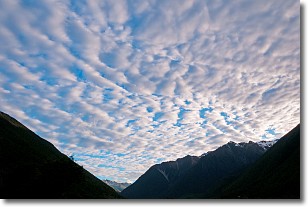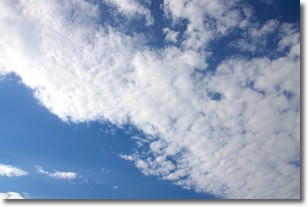Weather Alert in Wisconsin
Red Flag Warning issued May 11 at 2:52AM CDT until May 11 at 10:00PM CDT by NWS Green Bay WI
AREAS AFFECTED: Vilas; Oneida; Forest; Florence; Northern Marinette County; Lincoln; Langlade
DESCRIPTION: ...CRITICAL FIRE WEATHER CONDITIONS EXPECTED THIS AFTERNOON AND EARLY THIS EVENING... .Breezy southerly winds gusting 20 to 25 mph, low relative humidity, and warm temperatures in the 70s are expected to lead to critical fire weather conditions this afternoon and early this evening across portions of northern Wisconsin. Fires could spread quickly in these conditions. Similar conditions may develop again on Monday as temperatures climb near or above 80 degrees for some areas. The National Weather Service in Green Bay has issued a Red Flag Warning for gusty winds and low relative humidity, which is in effect from 1 PM this afternoon to 10 PM CDT this evening. The Fire Weather Watch is no longer in effect. * AFFECTED AREA...Vilas, Oneida, Forest, Florence, Northern Marinette County, Lincoln and Langlade. * TIMING...From 1 PM this afternoon to 10 PM CDT this evening. * WINDS...Southwest 10 to 15 mph with gusts up to 25 mph. * RELATIVE HUMIDITY...15 to 25 percent. * TEMPERATURES...In the upper 70s. * IMPACTS...Fires will start easily and spread quickly in these conditions. So outdoor burning should not be attempted. Visit the Wisconsin DNR website at apps.dnr.wi.gov/wisburn/#/BurnRestrictions and click on the appropriate county to view current burning restrictions.
INSTRUCTION: A Red Flag Warning is issued when critical fire weather conditions are either occurring now, or are imminent. A combination of strong winds, very low relative humidity, warm temperatures and exceptionally dry fuels will create dangerous wildland fire conditions. Persons are urged to be careful with any activities that could potentially lead to a wildland fire. Campfires, outdoor grills, smoking materials, chain saws, and all- terrain vehicles all have the potential to throw a spark and ignite a dangerous and destructive fire. Please advise the appropriate officials or fire crews in the field of this red flag warning.
Want more detail? Get the Complete 7 Day and Night Detailed Forecast!
Current U.S. National Radar--Current
The Current National Weather Radar is shown below with a UTC Time (subtract 5 hours from UTC to get Eastern Time).

National Weather Forecast--Current
The Current National Weather Forecast and National Weather Map are shown below.

National Weather Forecast for Tomorrow
Tomorrow National Weather Forecast and Tomorrow National Weather Map are show below.

North America Water Vapor (Moisture)
This map shows recent moisture content over North America. Bright and colored areas show high moisture (ie, clouds); brown indicates very little moisture present; black indicates no moisture.

Weather Topic: What are Stratus Clouds?
Home - Education - Cloud Types - Stratus Clouds
 Next Topic: Wall Clouds
Next Topic: Wall Clouds
Stratus clouds are similar to altostratus clouds, but form at a
lower altitude and are identified by their fog-like appearance, lacking the
distinguishing features of most clouds.
Stratus clouds are wider than most clouds, and their base has a smooth, uniform
look which is lighter in color than a nimbostratus cloud.
The presence of a stratus cloud indicates the possibility of minor precipitation,
such as drizzle, but heavier precipitation does not typically arrive in the form
of a stratus cloud.
Next Topic: Wall Clouds
Weather Topic: What are Altocumulus Clouds?
Home - Education - Cloud Types - Altocumulus Clouds
 Next Topic: Altostratus Clouds
Next Topic: Altostratus Clouds
Similar to cirrocumulus clouds, altocumulus clouds are
characterized by cloud patches. They are distinguished by larger cloudlets
than cirrocumulus clouds but are still smaller than stratocumulus clouds.
Altocumulus clouds most commonly form in middle altitudes (between 2 and 5 km)
and may resemble, at times, the shape of a flying saucer.
These uncommon formations, called altocumulus lenticularis, are created by uplift
in the atmosphere and are most often seen in close proximity to mountains.
Next Topic: Altostratus Clouds
Current conditions powered by WeatherAPI.com




